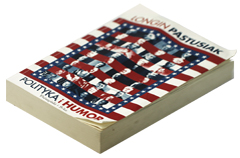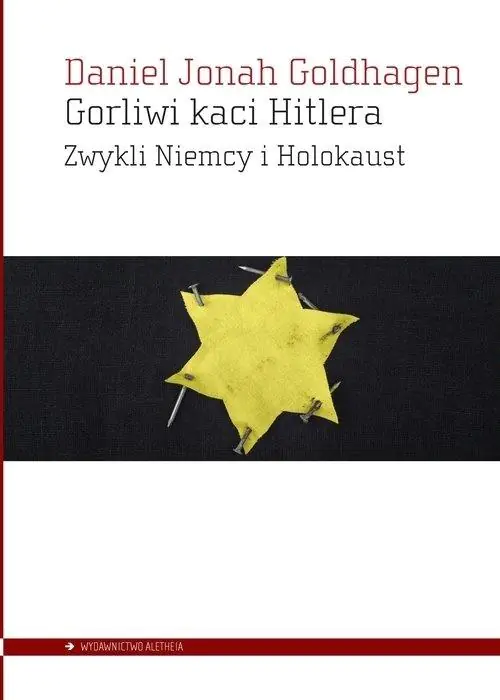Stan książek
Nasze książki są dokładnie sprawdzone i jasno określamy stan każdej z nich.






Nowa
Książka nowa.





Używany - jak nowa
Niezauważalne lub prawie niezauważalne ślady używania. Książkę ciężko odróżnić od nowej pozycji.





Używany - dobry
Normalne ślady używania wynikające z kartkowania podczas czytania, brak większych uszkodzeń lub zagięć.





Używany - widoczne ślady użytkowania
zagięte rogi, przyniszczona okładka, książka posiada wszystkie strony.
Gorliwi kaci Hitlera
DODAJ DO LISTY ŻYCZEŃ
Masz tę lub inne książki?
Sprzedaj je u nas
This book, authored by American researcher Daniel Jonah Goldhagen (born 1959), has sparked significant debate within the historical community, garnering both acclaim and criticism. Goldhagen delves into a subject often overlooked by historians: the identity of the Germans responsible for executing the Holocaust. He seeks to identify who these individuals were by analyzing extensive documentation, particularly the post-war testimonies of the perpetrators themselves. Boston-born Goldhagen, the son of a Holocaust survivor from the Czernowitz ghetto and a Harvard academic like his father, explores three main arenas of genocidal activity to answer his question.
Goldhagen investigates the police battalions that participated in the murder of Jews during the war in Poland and the USSR, the personnel of extermination camps, and the guards who conducted the death marches in 1945. His findings lead him to conclude that ordinary Germans, driven by deep-seated antisemitic beliefs, perceived the extermination as a natural occurrence. He argues that antisemitism, which had been prevalent among Germans since at least the 19th century, facilitated their overt or tacit approval of the Nazi regime's Final Solution—the extermination of European Jews. Based on the gathered evidence, some of which is harrowing and deeply unsettling, Goldhagen asserts that contrary to popular belief, these genocidal acts were carried out willingly and gratuitously, with perpetrators actively engaging in the persecution and killing of Jews up until the war's end.
Wybierz stan zużycia:
WIĘCEJ O SKALI
75.27 zł
nowa

- nowa książka
Wysyłka w ciągu 48h + czas dostawy
jak nowa
dobry
widoczne ślady używania
Dostępna ilość 6
Uwaga została 1 szt.
Posiadamy 6 szt.
This book, authored by American researcher Daniel Jonah Goldhagen (born 1959), has sparked significant debate within the historical community, garnering both acclaim and criticism. Goldhagen delves into a subject often overlooked by historians: the identity of the Germans responsible for executing the Holocaust. He seeks to identify who these individuals were by analyzing extensive documentation, particularly the post-war testimonies of the perpetrators themselves. Boston-born Goldhagen, the son of a Holocaust survivor from the Czernowitz ghetto and a Harvard academic like his father, explores three main arenas of genocidal activity to answer his question.
Goldhagen investigates the police battalions that participated in the murder of Jews during the war in Poland and the USSR, the personnel of extermination camps, and the guards who conducted the death marches in 1945. His findings lead him to conclude that ordinary Germans, driven by deep-seated antisemitic beliefs, perceived the extermination as a natural occurrence. He argues that antisemitism, which had been prevalent among Germans since at least the 19th century, facilitated their overt or tacit approval of the Nazi regime's Final Solution—the extermination of European Jews. Based on the gathered evidence, some of which is harrowing and deeply unsettling, Goldhagen asserts that contrary to popular belief, these genocidal acts were carried out willingly and gratuitously, with perpetrators actively engaging in the persecution and killing of Jews up until the war's end.












